the Executive Director of the Jewish Community Center of Staten Island makes it his business to meet the needs of the community—and then some
by JENNIFER VIKSE • Photos By Amessé photography
Staten Island may not be David Sorkin’s hometown, but it’s certainly his home.
Early on, Sorkin, who hails from Philadelphia and began his career there with Shriners Hospitals for Children, found himself on the path to success with the Jewish Community Centers, which offered a program to train executive directors around the country. Sorkin enrolled in one such program at his alma mater, Temple University.
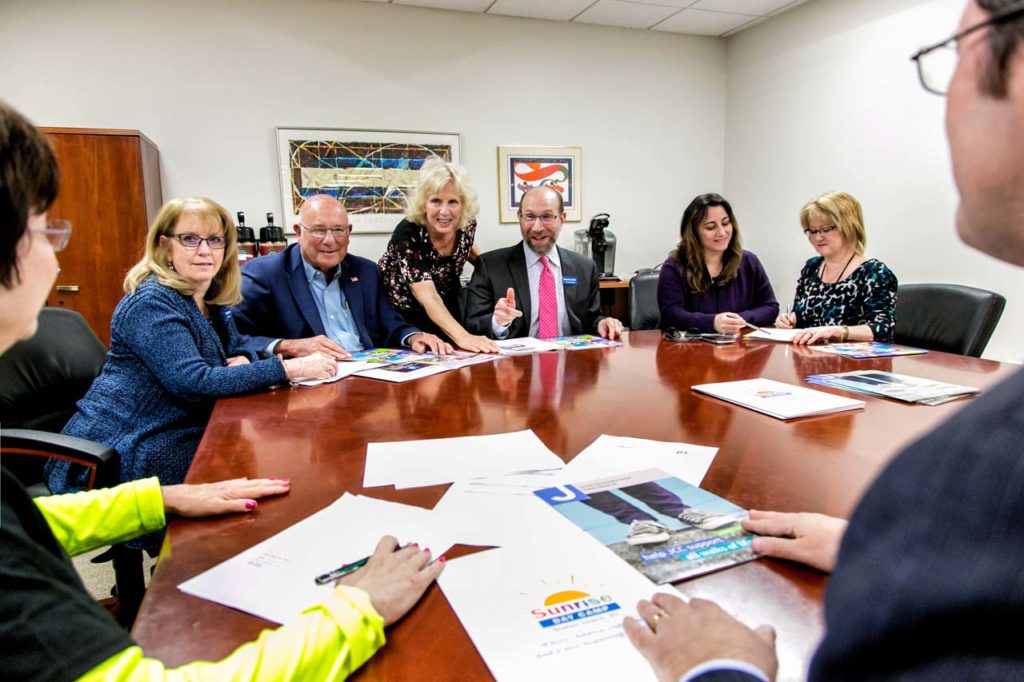
“I was fortunate to be in an avant garde position of recreational therapy—it was the very beginning of that, and new careers were developing,” explained Sorkin from his office at the Joan and Alan Bernikow Jewish Community Center on Staten Island’s Manor Road.
After completing the program at Temple, Sorkin was offered his first job with the JCC. “As a fairly young professional, my wife and six-week-old daughter went down to New Orleans,” he said. “I’ve been working in the JCC since 1977.”
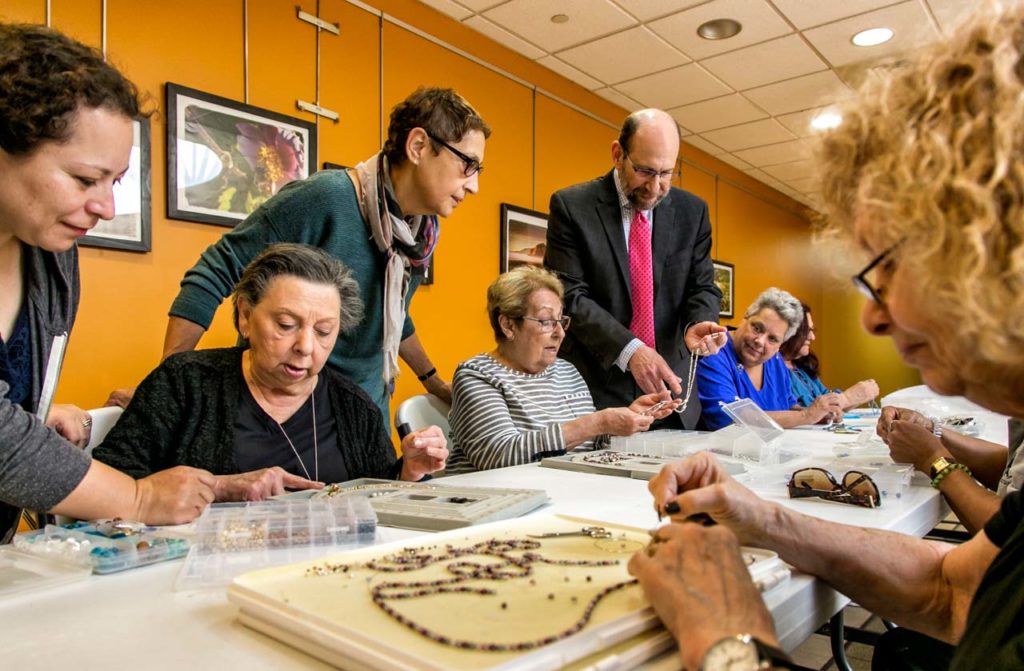
That ride, which has taken Sorkin to seven cities in his career, landed him on Staten Island in 2005. He couldn’t have been happier. At that time, his daughter and son-in-law, aspiring actors, lived in New York, and he’d told himself if there was an opportunity to come to the area, he’d take it.
At the time, the JCC was well established as a service provider in the community, and a flagship building was being built. “The timing was good when the opportunity presented itself; we saw what was going on in Staten Island and the future of Staten Island,” Sorkin said. “At the same time, my wife got a job in Manhattan. Sometimes things beam you in the right direction. And the borough is just wonderful, a welcoming community that’s more like little-town USA than metropolitan New York.”
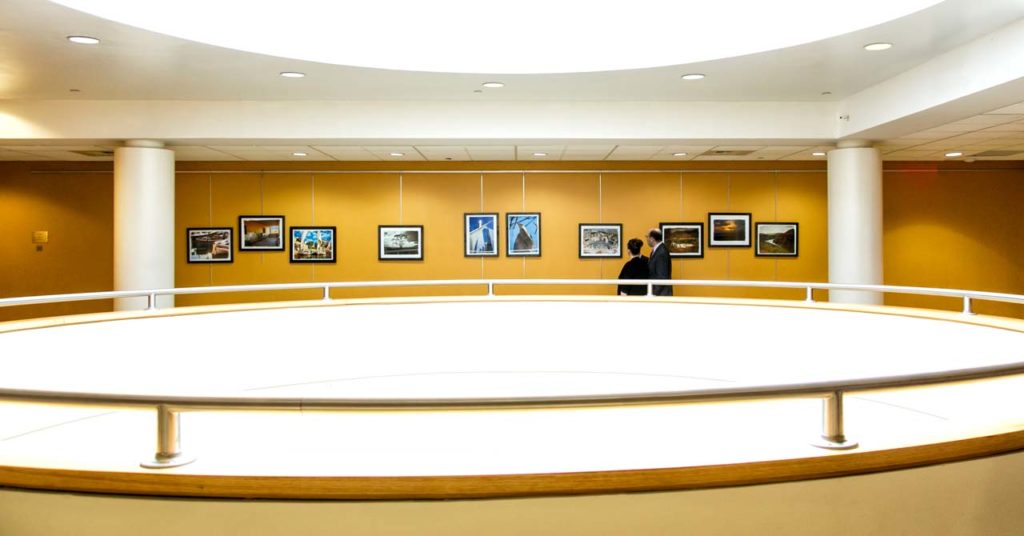
In post-9/11 New York, Sorkin said, the JCC began looking beyond existing programs, trying to see what else it could do.
“At Victory and Forest, the staff went to the roof of the JCC [and watched the buildings fall] and thought, ‘Oh my God, what can we do?’ The JCC became a refuge for outreach, connections, grieving—to help in any way in collation with resources/other organizations,” he recalled.
Super storm Sandy provided another opportunity for the JCC to broaden its horizons to better serve special-needs populations like the elderly. “I was here at that point; I’ll never forget that. None of our facilities were affected, but we realized that thousands of people we knew were.”
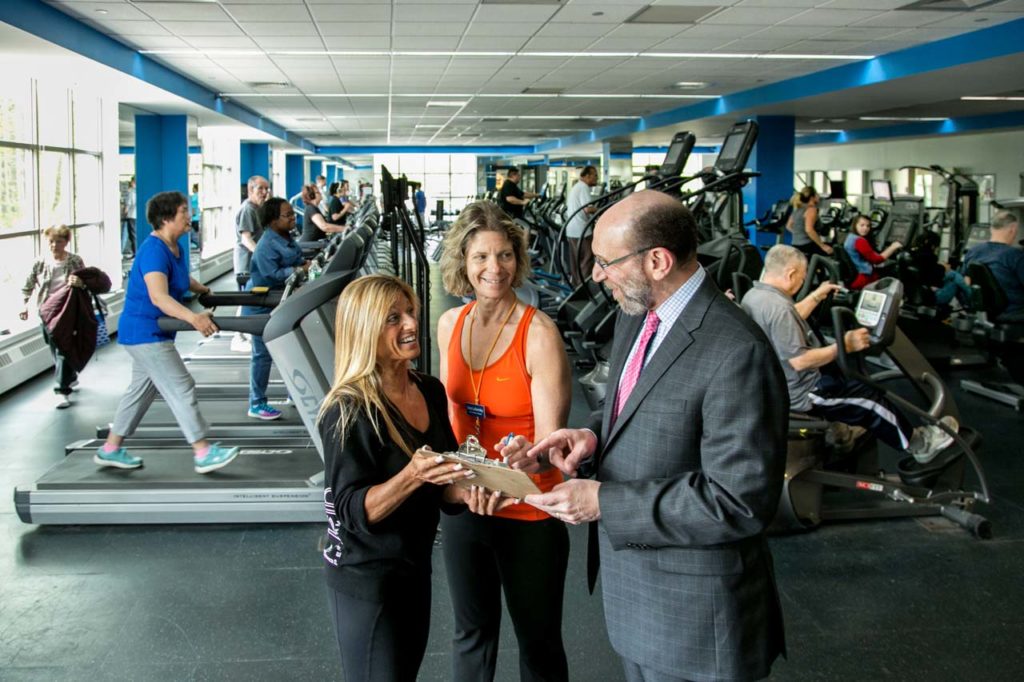
In response, they put together what Sorkin described as an “incredible system, providing case management, care for people suffering from PTSD—to help them manage their lives, get resources, internalize issues, make sure they have shelter, food, clothes, immediately.”
In the four years since Sandy, the JCC has managed more than 3,000 cases and has used the experience to further develop the COAD (Community Organizations After Disaster), a group of local organizations—including both hospitals and three colleges—willing to work together to not only prepare themselves for emergencies but to better serve the community.
“We looked at how we could apply this to current emergencies,” explained Sorkin, noting that about $4 million flowed through the center to make sure all different facets of support were covered. “I am very proud to be part of an organization so responsive to community needs.”
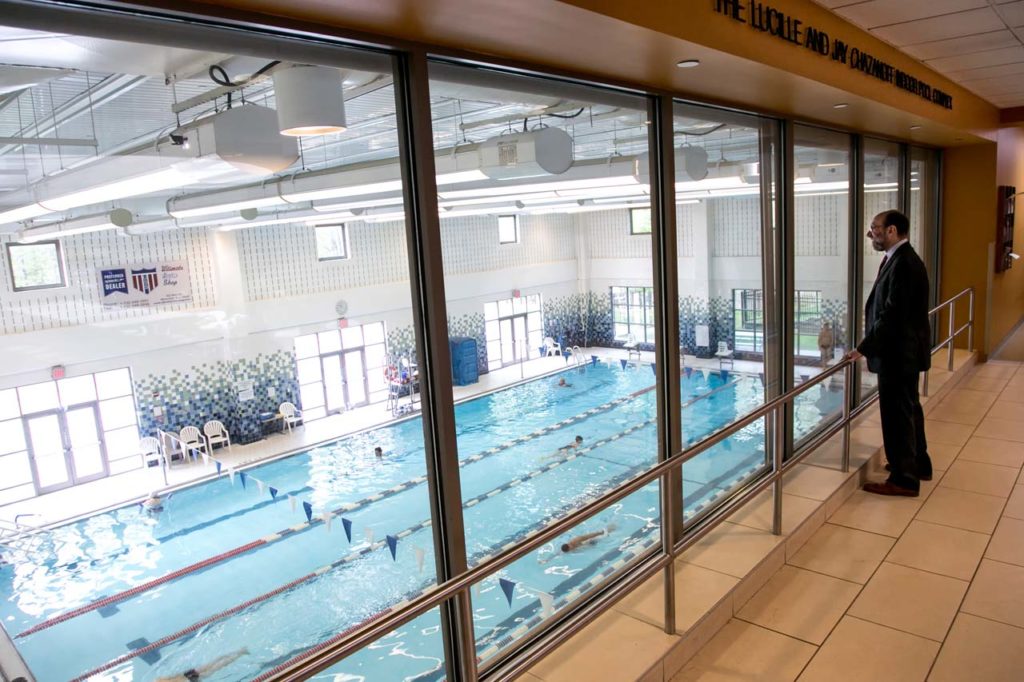
In fact, the COAD on Staten Island is unique in that its members continue to meet regularly to strengthen their network. The approach—about 25 groups committed to working together—has been recognized by both the New York City Department of Health and the state.
Sorkin said the JCC has always tried to base its services on community need, but they also have to balance the needs of their members. “At different times in our 85 years, it bounces back between what members want and need and what communities want and need,” he explained. “And most times, those things are in concert.”
Sorkin and his team have a knack for recognizing community needs. In recent years, they have seen a need for services for children and young adults with special needs, as well as for seniors. This is all being accomplished alongside their long-standing member-based programs, including daycare, preschool, gym, and programs for teens.
“We’re constantly looking for those kinds of needs,” he said. “We still have member services, and we’ve been very proud to do both at the same time.”
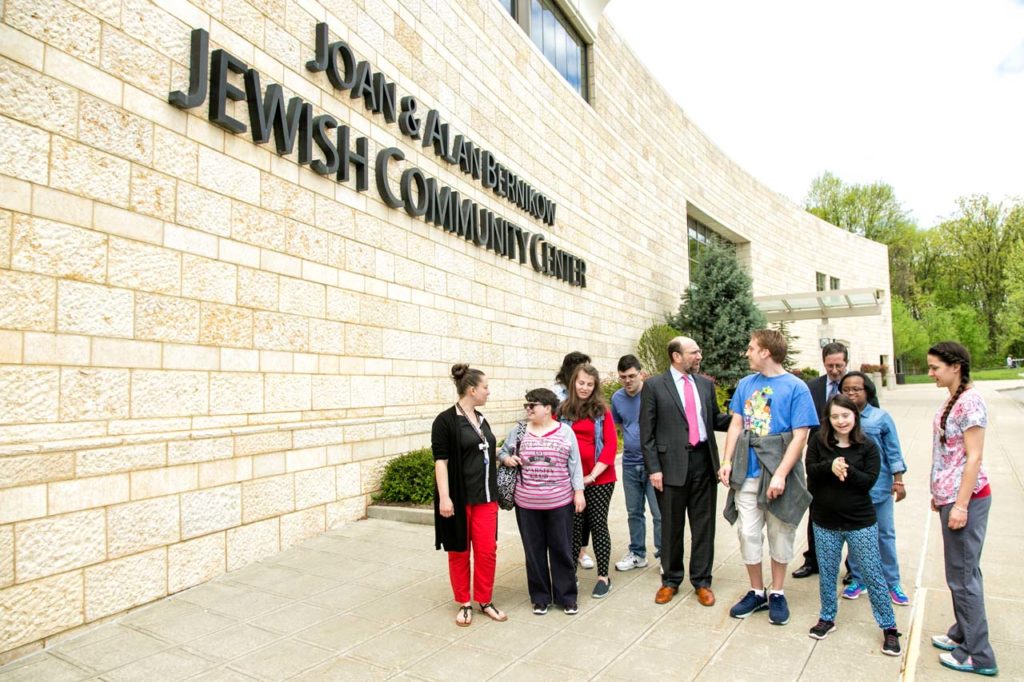
Another need identified is a camp for children with cancer. (“There’s a high incidence of pediatric cancer on Staten Island,” Sorkin noted.) To do something for these children and their families, he looked to colleagues on Long Island, who began Sunrise Day Camp for kids in cancer treatment. Sunrise is a year-long experience providing services to kids in the hospital (the Richmond University Medical Center), the camp itself, and at camp reunions.
“We take programs to the cancer treatment center,” Sorkin explained, creating an image of a mobile unit packed with toys and activities. “Whatever we can do to brighten their day. We just want to help children get through a difficult experience.”
The camp is free to kids in treatment and their siblings. “The Staten Island community has been incredibly generous. We fund raise 100 percent of all the costs.” Last year, 62 families were served, and Sorkin expects that number to double this year. “The need is there,” he said.
The JCC also operates summer camps at eight locations on the Island that between them offer 300 jobs to young people and enriching experiences to more than 2,000 children.
On the opposite end of life’s spectrum, the JCC has become known for its commitment to seniors. Challenged several years ago by then-Mayor Michael Bloomberg, Sorkin and the JCC built a robust program that brings recent retirees and the elderly together for elevating experiences. They created the Center for Lifelong Development, a college-based program that features content created by the individuals in the program. More than 6,000 people are currently enrolled.
Sorkin and his team are also busy developing a program for adults with early onset dementia, as data shows the incidence of dementia and Alzheimer’s growing on the Island.
How does he get it all done? “I really have to say we are able to do that because we have an incredible, incredible staff. They take to heart suffering in the community, the needs that people have. Dedicate time, energy, and thought,” he shared.
For Sorkin, Staten Island and the JCC make a unique partnership. “What stands out more than anything else is not a service, but a method…to be cognizant of the needs of the community—put programs and services in place,” he said. “Each community center I worked in had its own wonderful programs, but I’ve never been anywhere so broad-based.”
He and his team meet twice a year for “big meetings” in which they discuss the changing landscape of the Island and how they can continue to offer top-notch services. With so much on the horizon, it’s hard for Sorkin to consider slowing down. “When I think of the future, something more exciting comes up,” he said.
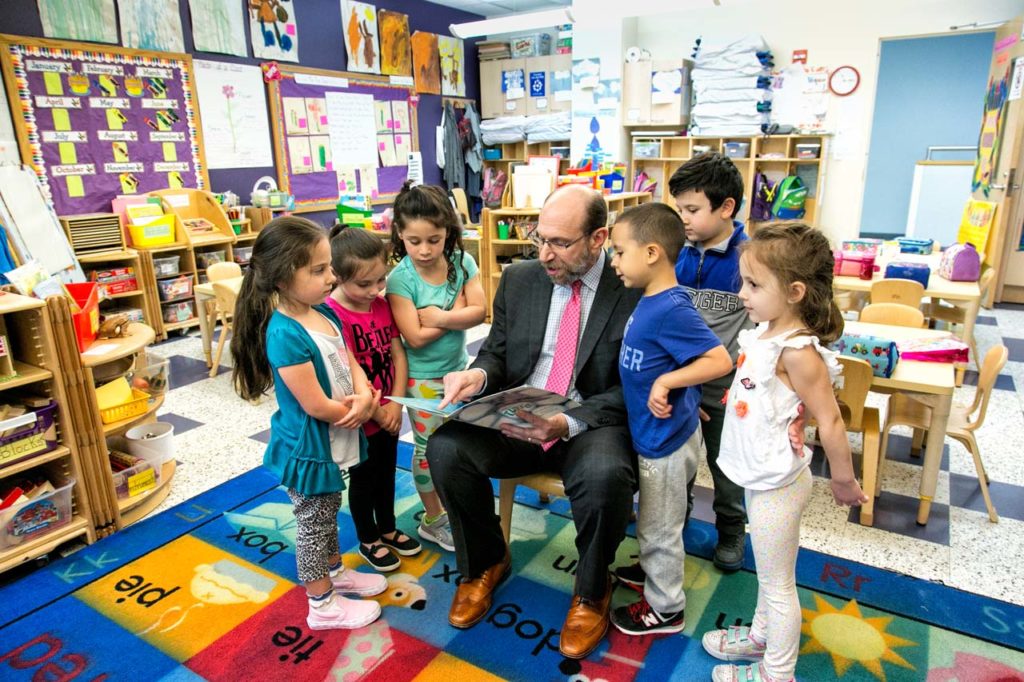
Sorkin and his wife, Arlene, live in Silver Lake and love being a daily part of their granddaughters’ lives. Arlene is also community-minded, running Illuminart, a theater program that provides educational and theater experiences that help kids deal with grieving, bullying, and other complicated social issues.
“As you can imagine, we have a lot to talk about over dinner,” he quipped.